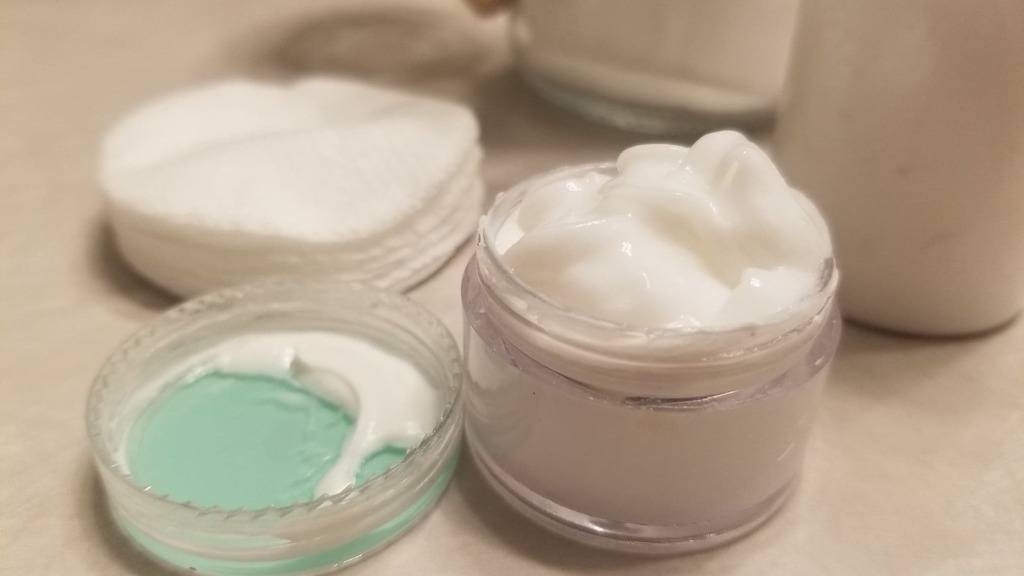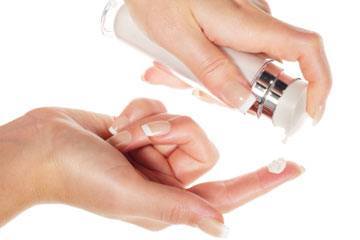For years, the skincare industry has been telling us that moisturizer is a crucial step in any routine, especially if you want to ward off wrinkles and keep your skin looking young and healthy. But what about acne? Does moisturizer help with acne, or is it just another beauty myth? Let’s take a closer look.
Does Moisturizer Help With Acne?

The short answer is that moisturizer can help with acne, but it depends on the type of moisturizer you’re using. If you’re using a heavy, oil-based moisturizer, it could actually make your acne worse. However, if you’re using a light, water-based moisturizer, it could help to keep your skin hydrated and prevent breakouts.
There are a few things to keep in mind if you’re using moisturizer to help with your acne. First of all, be sure to cleanse your face thoroughly before applying the moisturizer. This will help to remove any dirt, oil, or makeup that could clog your pores and lead to breakouts. Secondly, only use a small amount of moisturizer; apply it evenly over your face, but don’t layer it on too thick. Finally, be sure to choose a non-comedogenic moisturizer; this means that it won’t clog your pores.
If you’re struggling with breakouts, using a light, oil-free moisturizer can help to reduce inflammation and keep your skin hydrated. Just be sure to wash your face twice a day and choose a non-comedogenic formula to avoid making your breakouts worse.
How Does Moisturizer Help Prevent Acne?
There are two main ways in which moisturizer helps to prevent acne: by keeping the skin hydrated and by providing a barrier against bacteria and other irritants.
Keeping the skin hydrated is important for preventing acne because dry skin is more prone to breakouts. When the skin is dry, it produces more oil in an attempt to compensate, which can lead to clogged pores and breakouts. Moisturizer helps to keep the skin hydrated and prevent this vicious cycle.
Moisturizer helps to keep the skin hydrated and prevents the overproduction of sebum. When the skin is too dry, it can lead to an overproduction of sebum, which can clog pores and lead to breakouts. Conversely, when the skin is properly hydrated, it’s less likely to produce excess sebum. Additionally, moisturizer helps to soothe inflammation and redness, two common side effects of acne.
In addition, moisturizer provides a barrier against bacteria and other irritants that can cause acne. Many moisturizers contain ingredients like glycerin or petroleum jelly that create a protective barrier on the skin without clogging pores. This barrier protects the skin from environmental aggressors like pollution and bacteria that can cause breakouts.
What Are the Best Moisturizers for Acne Prone Skin?

The first step in finding a good moisturizer for your acne is identifying what type of acne you have. There are four main types of acne: blackheads, whiteheads, papules, and pustules. Blackheads and whiteheads are both types of comedonal acne, which means they’re caused by hair follicles being blocked by sebum (oil). Papules are small, red bumps that are inflamed but don’t have a whitehead. Pustules are similar to papules but have a white or yellow head.
Once you’ve identified your type of acne, you can start to look for moisturizers that will work for you. Here are 7 of the best moisturizers for acne prone skin:
Cetaphil Dermacontrol Oil Absorbing Moisturizer SPF 30: This tinted moisturizer is lightweight and oil-free, making it ideal for those with oily or sensitive skin. It also contains SPF 30 to protect your skin from the sun’s harmful UV rays.
La Roche-Posay Effaclar Mat Daily Moisturizer: This oil-free moisturizer is non-comedogenic, meaning it won’t clog your pores. It also contains an ingredient called sebolytic active agent, which helps regulate sebum production.
Neutrogena Oil-Free Pink Grapefruit Facial Moisturizer: This affordable option is great for those with sensitive skin. It contains Vitamin C and glycerin to brighten and hydrate your skin without causing irritation.
Paula’s Choice CALM Redness Relief Mineral Moisturizer SPF 30: This mineral sunscreen is good for those with sensitive or rosacea-prone skin. It contains green tea and chamomile extract to soothe inflammation as well as SPF 30 to protect your skin from the sun’s harmful UV rays.
Dermalogica Calm Water Gel: This gel-cream hybrid is perfect for those with combination or oily skin. It’s oil-free and quickly absorbs into your skin without leaving behind any residue.
CeraVe AM Facial Moisturizing Lotion SPF 30: This facial moisturizing lotion from CeraVe contains SPF 30 to protect your skin from the sun’s harmful UV rays. It’s also non-comedogenic, so it won’t clog your pores. The lightweight, oil-free formula contains ceramides to help restore your skin’s natural barrier and niacinamide to help calm redness and irritation. This lotion leaves your skin feeling hydrated and looking refreshed.
Murad Oil-Control Mattifier SPF 15 PA +++:This product from Murad is a two-in-one moisturizer and sunscreen. It contains ingredients that help to control excess oil production while still providing your skin with the hydration it needs. This product is also formulated with zinc oxide, which provides broad spectrum protection against the sun’s harmful UV rays.
6 Tips on How to Prevent Acne
- Keep your skin clean. Wash your face at least twice a day with a mild soap or cleanser. Avoid scrubbing your skin too hard, as this can irritate your skin and make breakouts worse. Be sure to remove all makeup before going to bed.
- Don’t pop your pimples. It may be tempting to try and get rid of a pimple by popping it, but this can actually make breakouts worse. Popping pimples can cause more inflammation and lead to scarring.
- Choose makeup carefully. If you wear makeup, be sure to select products that are non-comedogenic, meaning they won’t clog your pores. Look for products labeled “oil-free” or “water-based.” Avoid products with ingredients like isopropyl myristate and sodium lauryl sulfate, as these can cause pores to become blocked. Be sure to wash your face thoroughly before going to bed to remove all traces of makeup.
- Manage stress levels. Stress can trigger or worsen acne breakouts, so it’s important to find ways to manage stress effectively. Exercise, deep breathing, and meditation are all great ways to reduce stress levels.
- Eat a healthy diet. Eating a healthy diet is good for your overall health and can help prevent acne breakouts by keeping your skin clear and preventing inflammation. Be sure to eat plenty of fruits, vegetables, and whole grains, and limit sugar intake as much as possible.
- Hydrate. Drink plenty of water throughout the day to keep your skin hydrated from the inside out.
